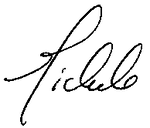A Letter to Faculty: Oct. 1, 2024
October 1, 2024
Dear faculty colleagues,
Our motto of Pro Humanitate calls on us to create a shared community of learning, creativity and inquiry where all can thrive and flourish. Our educational mission asks faculty to express their ideas and to challenge the ideas of others without fear of retribution and to cultivate a learning environment that is compassionate, empathetic, and critical so that we can encourage and invite all students into a transformational liberal arts experience. This balancing act is not always easy in these extraordinarily challenging times.
The decision not to allow Professor Abdulhadi to speak on campus on October 7 was an exceedingly difficult one. The speaker was invited to give a lecture on a date that is painful for many in our community. The University supports the freedom of faculty to use their professional judgment to invite speakers to give talks for pedagogical and scholarly purposes, and without formal review processes. However, in this specific instance, inviting a scholar to give a lecture titled “One Year since al-Aqsa Flood: How do We Review a Year of Genocide and Resistance?” on the first anniversary of the Hamas attack on Israel led to a series of cascading events that eroded the University’s confidence in ensuring security in the rapidly-evolving environment surrounding the public event date.
To be clear, to practice our core mission of transmitting and generating the creation of new knowledge, faculty must interpret, investigate, and expand what we know by analyzing the ideas of the past and exploring new ones. This critical work often generates intense academic debate on some of the most important issues of the day. Our community should be engaged in these debates, and we must ensure that we do so at a time and in a manner that encourages civil discourse, authentic engagement, and real learning.
In tandem with this commitment to freedom of expression and academic freedom, is our deep commitment to student flourishing. Our faculty need to cultivate classrooms where if students espouse unpopular views, there will be no reprisals. In such learning environments, students need to feel free to disagree with each other and with their professors, and therefore are better able to thrive and grow personally and intellectually. These kinds of intentional spaces foster transformative learning, which is the hallmark of a Wake Forest education. There is no doubt that this is extremely hard work for professors to take on, and we must support each other in our efforts. To that end, please consider attending the Center for the Advancement of Teaching’s timely Democratic Pedagogy Institute on October 11, which includes a workshop on balancing free expression and equal respect.
In September 2023, Dr. Wente and I charged the University to start an inclusive multi-phase process to draft a new written statement of free expression and academic freedom. During the past summer, a group of Wake Forest faculty and staff, equipped with research into Wake Forest’s history, peer school approaches, and contemporary perspectives on free expression and academic freedom, drafted a statement reflecting our commitment to these civic principles and learning ideals that have been embraced at Wake Forest but never written in a central place.
We will release the draft in the next few weeks. You can find background about the process on the new Freedom of Expression and Academic Freedom website. The next step will be for us as a community (students, faculty, and staff) to share, reflect on, discuss, and offer feedback on that draft. The drafting group will use this feedback to refine the statement. We hope that you will bring together a group of colleagues or perhaps a team of students, faculty, and staff you know to discuss this draft together; a discussion guide will also be posted. Sharing our perspectives on this topic is an important way to practice the very ideals of civil discourse that it prioritizes for our community.
This set of conversations marks an important moment at our University, and especially in the wake of the decision not to allow an invited speaker on October 7. We are committed to a path forward with co-sponsors on future programming that elevates marginalized voices.
Sincerely,

Michele Gillespie
Provost
